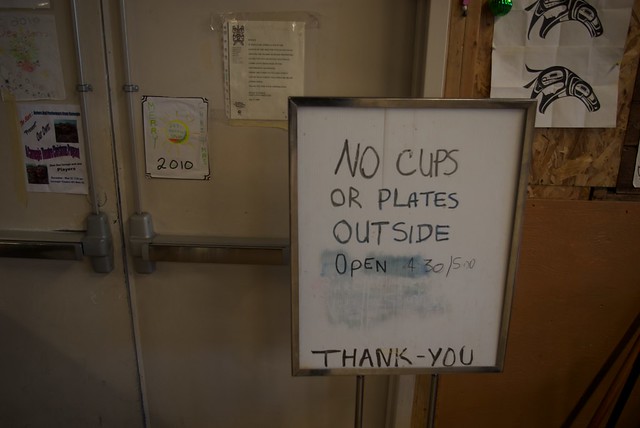Vancouver historian Michael Barnholden has written that there are at least two recurring themes in Vancouver’s political discourse. The first is a theme of revision, where low-income and working-class lives and stories are erased from the history of the city. The second is a history of criminalization, where the poor are associated in the political imagination with crime and police control. A truly contemporary example of the use of these two motifs occurred today in a Globe and Mail article on the conversion and upscaling of the American Hotel.
In the coming weeks, the American is set to open with almost 50 market-rate apartment units and an entrepreneurial “izakaya-themed” bar below. The project at 938 Main Street will establish the building as part of trendy developments extending the “Crosstown” area beyond Chinatown South. The Globe piece, written by Frances Bula, sets out in journalism’s formulaic terms to booster the development. Most notably, the article gives a vivid documentation of the history of petty crime and drug trafficking at the American hotel, and it is in light of this dark past that a bright, “revitalized” future is posed for the American.
Yet in all of its emphasis on crime, Frances Bula fails to mention the biggest crime of all: the illegal eviction of all low-income tenants from the hotel in 2006. In contrast to the “grunge” of the city, Bula chooses to write exclusively for the quasi-artistic retail bourgeoisie, making it “hard to mourn the American Hotel and its bar that died in 2006, unless you were into super-cheap blocks of stolen cheese, cocaine, motorcycle gangs, grunge or all of the above.” The list excludes the low-income history while at the same time making it so that if the history were to be included, it would have to do so only by being inserted into a predetermined list of crimes. But for a moment let us remember – mourn – the true history of the American Hotel.




